As you pass through the steamy, glass doors, you reach the bearded dragon (as I like to call him). His demands are irrefutable, and

coming from the paintbrush mustache, seem somewhat intimidating.
“Identification.” So you hand him your I.D before he puts the hurt on you. And then he may or may not ask you to brush your hair to the side, or smile really wide to prove you’re of legal adulthood before he let’s you through the mysteriously murky entrance.
The scent of sweat, fog, and PBR should repulse you, but in this atmosphere, it’s commonplace. The showcase marquee lights intrigue the senses, and the excitement of the concertgoers give off a whimsical radiance that effortlessly passes from person to person. The late-arrivals, who thought they could squeeze in for a quick bar run before the show, rush through the doors just before the headliner.
Father of the Metro, Joe Shanahan, is Chicago’s “go to guy” on independent music promotion. He’s helped bands from R.E.M to the Smashing Pumpkins get their start in the music industry.
Metro’s 25 plus years as a music venue has finally made all the hard work worth it. Every night the Metro has a show, lines of people are out front, eager for a night of eccentric dancing, excessive drinking, and embarrassingly off-key sing a longs.
The Metro, located at 3730 N. Clark St., hosts a wide array of musical acts, whether it be local Chicago bands just getting their start, or world famous bands with an already flourishing fan base. Phantogram, with openers Reptar and ExitMusic, satisfy regional to national tastes.
Exit Music, a couple, one from Canada and the other from New York, captures romanticism in a mysterious way. Reptar, lovable college dropouts from Athens, Georgia, have more of a poppy-electronic dance feel.
“There are egotistical indie-rockers, with decently, danceable music,” said Jake Karlson, resident near the Metro.
Tickets usually range from 16 to 75 dollars, whereas the emerging venues have a harder time making profits. Established venues capacities hold a lot more than a pop-up venues, which means more money, and in return comes rules that go along with being a reputable concert hall.
Flashing strobes lights trance the audience while Phantogram prepares for the first spacey, chord progression. Lead vocalist, Sarah Barthel, floats toward the mic/synth and when she opens her mouth, angelic chords soar into the crowd’s ears and a faint roar begins to engulf the venue.
Sullen vibes from the vocals, mixed with the sharp, synthy keys, with a splash of drawn-out guitar, and to top it off, crisp, reverberated strums, starts to make you wonder if your drink was dosed. Space effects on Barthel’s supernatural synth create the illusion that you have been pulled into an alternate universe. John Carter, other half of the duo, plays riffs similar to those of Daniel Kessler from Interpol. The gloomy, yet optimistic sounds the duos invent an atmosphere enjoyable by many. Phantogram\’s Spacey Beats


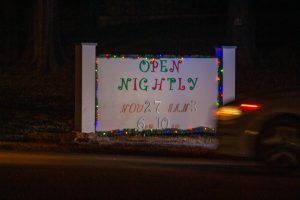




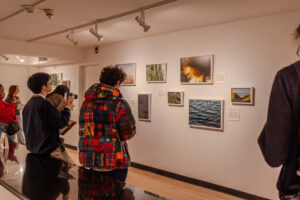
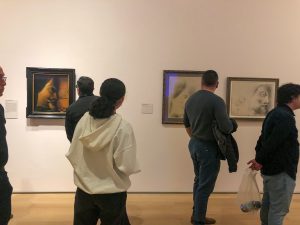
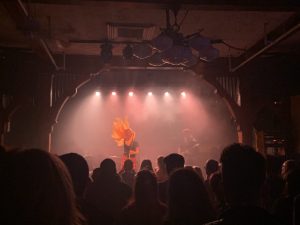
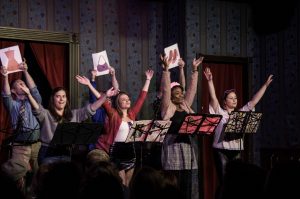





Be First to Comment